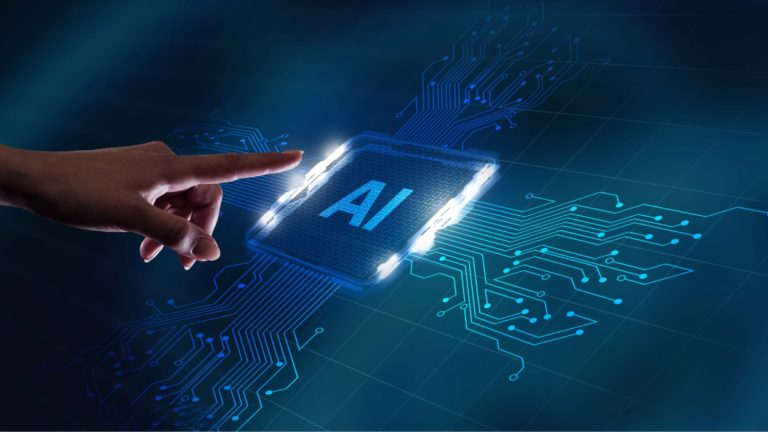Industries and processes across the globe are embracing new technologies to increase efficiency and deliver faster and accurate outcomes. Artificial Intelligence (AI) and Machine Learning (ML) have recently taken the world by storm with their advancements in delivering impactful and insightful results.
Today, the recruitment sites are swarmed with AI-based jobs. Organizations across the world are looking for skilled resources in AI to help them to accelerate data analytics, research, and intelligence in operations.
From robots serving food to self-driving cars to home listening devices, AI can be witnessed in our day-to-day lives. Artificial intelligence is a broader concept which deals in embedding human intelligence to machines. It enables machines to think, process, learn, and correct themselves without any human intervention. The key rationale behind the employment of artificial intelligence is to enable machines or systems to act by itself without repeated programmer coding.
AI capabilities are in high demand across industries – gaming, robotics, speech recognition, and search engines, listening tech, etc. To make an aspiring career in AI in 2023, one must have an in-depth knowledge of data science & statistics, and certain basic knowledge of data processing & software engineering.
Also read: Air India makes salary deduction from employees for not vacating Co. accommodation
Here are the 5 skills that are must-haves to make an aspiring career in AI.
- Data engineering
Data is at the root of any AI and ML process. The first step in AI/ML development is pre-processing and storing raw data generated by integrated systems. For example, a multiplayer online game will have millions of permutations to the way it’s played by players. This creates a lot of data at each stage of the game. All this data is then sent to the AI engines to perform ETL (Extract, Load & Transform), massage the data, structure it and apply intelligence to create desired patterns and results.
One must know ETL process, understand data warehouse, and learn the basics of Object storage platforms.
- Programming languages
Learn some of the programming languages that are used is ML processes. The most common ones that are being used widely across organizations are Python, C++, JavaScript, R, TypeScript, C#, Julia, Shell, and Scala. It is important to know the basics of these languages, and taking courses and getting certified in one of those will increase your chances of getting recruited.
While Python is the most common language among machine learning repositories such as GitHub, Scala is growing in trend, especially while interacting with big data frameworks.
- Calculus, Statistics & Linear Algebra (Mathematics)
It is recommended to have an in-depth understanding of mathematical concepts of linear algebra, calculus, and statistics. One must know concepts such as Matrices, Vectors, and Matrix Multiplication. Furthermore, understanding of differential equation or derivatives, and integrals is imperative to understand basic ML concepts such as gradient descent, etc.
Learning probability theory for algorithms such as Naive Bayes, Gaussian Mixture Models, and Hidden Markov Models are necessary to create AI models. One must also learn statistical concepts such as mean, standard deviation, and gaussian distributions and understand where and how they are being used in AI.
- Neural Network Architectures
AI & ML are capable of computing large volumes of data in split seconds. These require them to create neural networks in order to perform complex tasks and algorithms faster. These neural networks help in identifying problems in areas such as speech recognition, image identification, permutations, translation, predictions, etc. Learning the basics of neural networks might be useful to enhance your chances of selection. Common tools to learn neural engines and networks are Python, R, SAS, Tableau, etc.
- Signal Processing Techniques
Signal processing is a vital process in feature extraction while working with data sets that include images, audio, and videos. Signal processing is an electrical engineering subfield that focuses on analysing, modifying, and synthesizing signals, such as sound, images, and scientific measurements.
Understanding of signal processing techniques and tools will help you to build a technical resume. Most common techniques used widely in signal processing are Time-frequency Analysis and Advanced Signal Processing Algorithms such as Wavelets, Shearlets, Curvelets, and Bandlets. A profound theoretical and practical knowledge of these will help you to solve complex problems in AI/ML.
Final Thoughts
The demand for AI skills is increasing each day. Technology fuelled by digital transformation is creating millions of jobs in AI every year. Those who utilize AI skills effectively will be in high demand and will find jobs in varied industries. Upskilling in some of these areas using online/ offline courses from reputed organizations will create a robust foundation and will help in finding the perfect job that matches the skills. By developing your skills in AI and ML, you will be well-positioned for a successful career in AI in 2023.
Stay connected with us on social media platform for instant update click here to join our LinkedIn, Twitter & Facebook
























Add comment